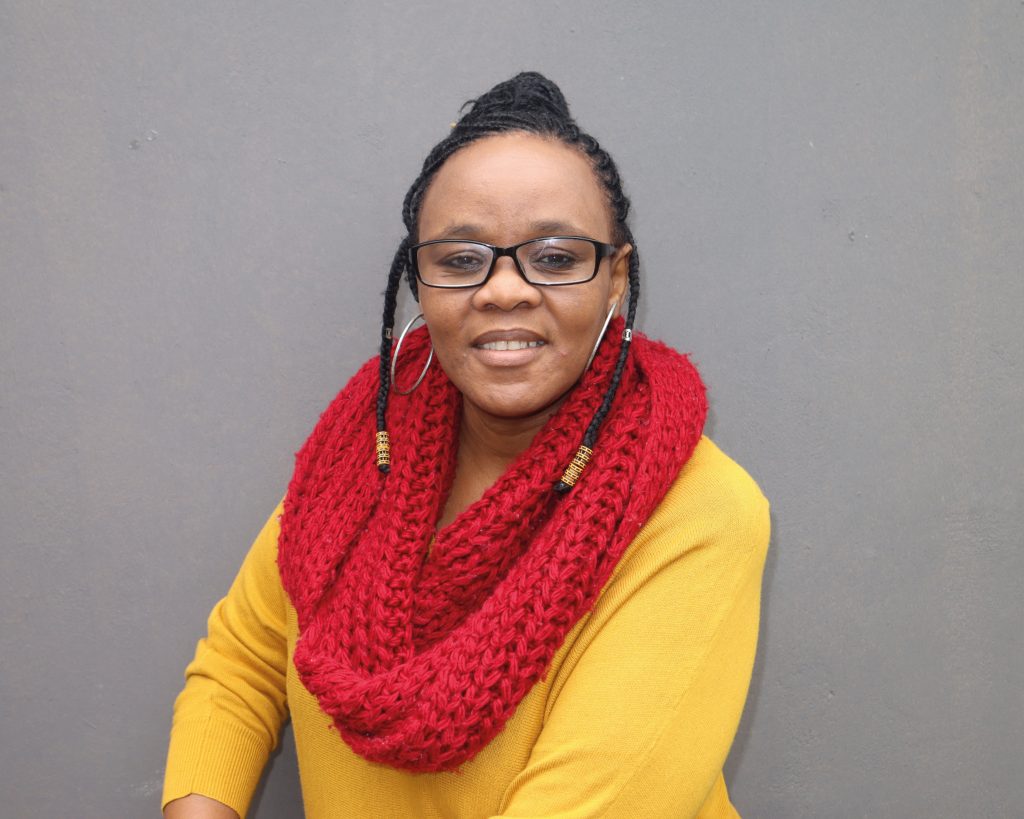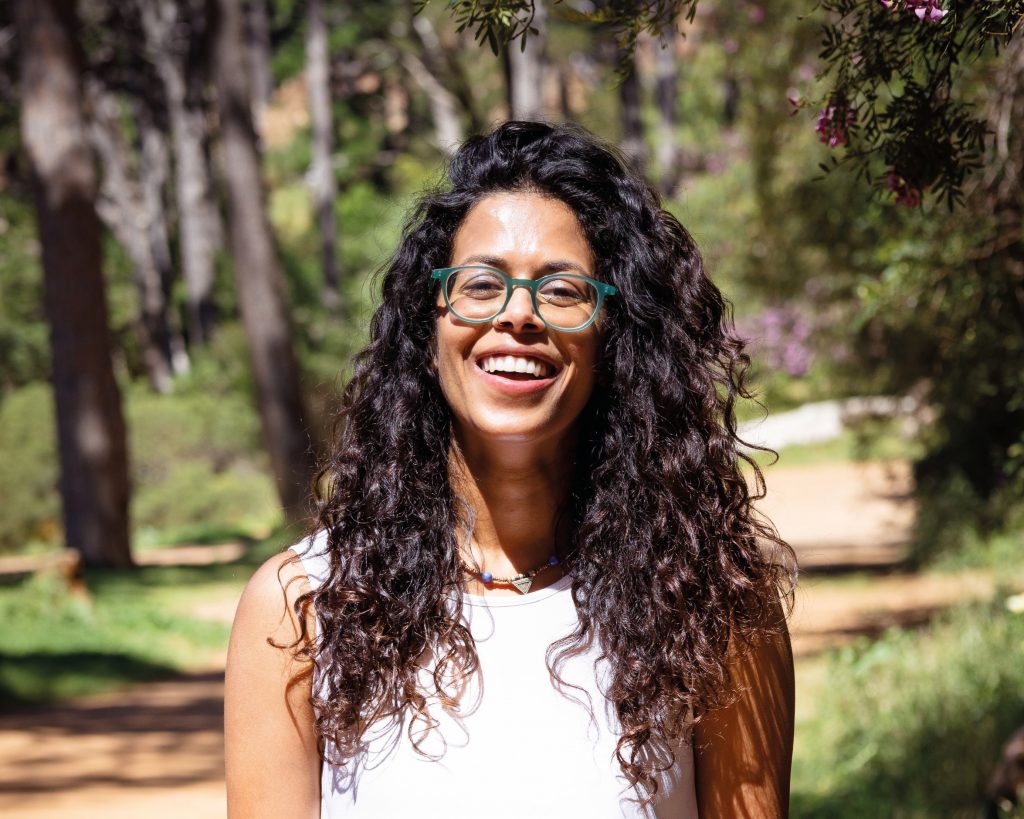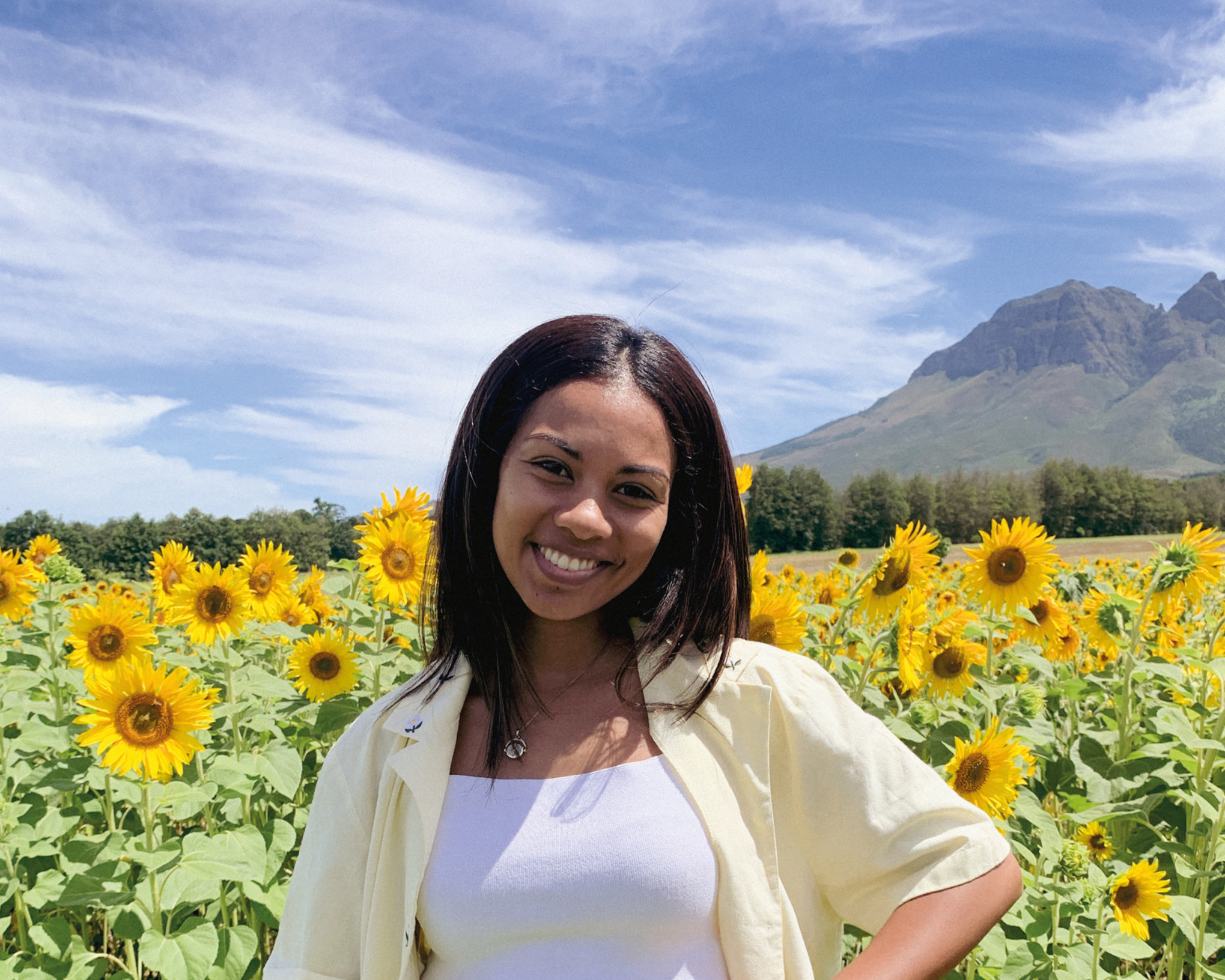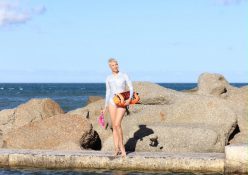From joining worlds and restoring sacred spaces, to survival, perseverance and the importance of creativity; we briefly unfold the stories of three powerful women tackling their lives and careers with passion and tenacity
Lebo Montewa

She is a mother, avid gardener and nature enthusiast. As a program manager for the Individual Findings in Genomics Research in Africa with the University of Cape Town’s Human Genetics Division, she actively works to join two worlds. That of academia and one of honouring her spirituality and all the innate connections that make her who she is. Sprinkled into this journey is a PhD Candidacy and emerging filmmaking and storytelling endeavours.
Talk to us about success…
I see success as a personal yardstick which is often engraved in the framework of society’s ideologies. Even in moments where I think I am defining success according to my own measures, I am forced to consider whether my own definitions of success are perhaps riddled by what has been projected onto me by others. So, success is ever-changing. I would, however, like to think that a measure of success is discovering our own journeys, in all its uniqueness.
In the world of genetics, how does your culture and lived experience affect your professional experience?
I often struggle to reconcile my personal experiences – either imposed by my upbringing, family dynamics or culture – with where I find myself professionally. As someone in the field of science, I struggle to explain a deep-rooted connection to my ancestors because I’m unable to frame it into the context of scientific proof. This often forces me to mute my own voice so that I can remain within the typical frameworks of what is considered real or not. I am only now discovering ways of dealing with it, which for me is remaining as authentic and true to my nature as I can, so I offer both parts of my world validity.
Which qualities do you associate with good leadership?
Leadership can manifest in many ways such as how you listen, engage, give advice, offer compassion and stay grounded in integrity. For me, it’s the ability to dismantle my ideas as the ultimate answer, and embrace other perceptions and experiences to arrive at a central decision or outcome.
Amy Samuels

She’s a 30-year-old outdoor explorer, creative, former TV and sports journalist and entrepreneur. She launched Unmaskd. Media in 2019 with the pure intention of it being a creative outlet and a way to capture stories differently to what she was doing full-time. By 2021, she’d hung up her journalist mic and chose to tell raw and authentic stories in sport as her primary labour of love.
As a creative, how does imposter syndrome impact you?
Imposter syndrome loves creeping in when I’m in a good creative mind frame, brain-storming or planning my next project. It’s a domino effect if you don’t catch it quickly enough so I’ve taught myself to unplug in those moments – to detach myself creatively and occupy my mind with an activity that brings me joy. Once I’m in a good frame of mind again, I’m a lot more at peace with my thought process and sense of place.
Women face so many challenges, mainly amplified by ambition. Which challenges have you experienced?
There are quite a few, but the two that stand out for me are mental health and work environments. I was in a pretty bad head space for more than a year. I loved my job and had deep gratitude for the stories I got to cover, but I was also dealing with somewhat of a toxic space. It made me question whether I was cut out for the work I was so passionate about. Thankfully, I had an incredible support structure that helped pull me out of it. I took a few months off to breathe and it really helped my mental and emotional health in so many ways. It generated more creativity and connection.
Talk to us about the progression from being led to becoming a leader…
It’s interesting, when I took on my business full-time, I realised that it would open up a space for mentorship and indirectly leading a team. I had never led as a manager before so it was all new to me. I think what works for me is not placing too much pressure on the title, but appreciating the person, their personal experiences and goals before their title or role.
As an entrepreneur, what advice would you offer other motivated young women?
Go for it. Don’t spend too much time perfecting things before you launch or take that leap. Your idea or journey may not be unique or ‘new’, but it’s special because it represents your personal bravery and strength. Part of the beauty is learning more about yourself and figuring out who you are, and what you’re capable of while you’re building your business or figuring out your next move.
Denisha Anand

She is a 30-year-old single mom, intersectional environmentalist and biodiversity project manager who holds a masters in mapping and visualising indigenous plant intimacies and practices. A vegetal spellcaster of sorts, she has taken great strides
in conservation and the management of strategies that prioritise both place and people. Her TEDxCapeTown talk about Princess Vlei aims to inspire every community to adopt a sense of custodianship.
How does passion and success connect for you?
I define success by how much time I’m able to spend doing what I am passionate about. So while I consider myself quite successful, I’m aware of the privilege of having a career that’s grounded in my passion for nature and community development – as well as the restoration of both.
Tell us about the value of your work in this space…
My work is undervalued in conservation spaces because it intersects with very social aspects of the working-class identity, something mainstream conservation and science neglects to address.
How do you deal with imposter syndrome, especially as a woman of colour in the environmental sector?
I deal with imposter syndrome by reminding myself that I have facilitated remarkable change within my field from a relatively young age. Looking back on my work and reflecting on the effort and love I’ve put into the projects that I’ve managed and implemented is such a heartfelt testament to what drives me. I also surround myself with people who support me and encourage me when I don’t have the mental ability to do so myself. It’s a constant battle, it’s the mark of patriarchy on our psyche as women.
Imposter syndrome is not your only challenge – let’s talk about gender politics and ageism…
Many of my challenges are related to my age, gender and race. Also the fact that I have gained most of my experience without a PhD. There is a social culture that dictates that women of colour are more worthy of being taken seriously when they overachieve academically and acquire certain titles. I don’t conform to or agree with that sort of thinking, and prefer to acquire experience on the ground and have my academic experience be about my love for knowledge and not a box to tick.
Words by Stefanie Titus-Peterson
Photography: Craig Frank, Courtesy Images





